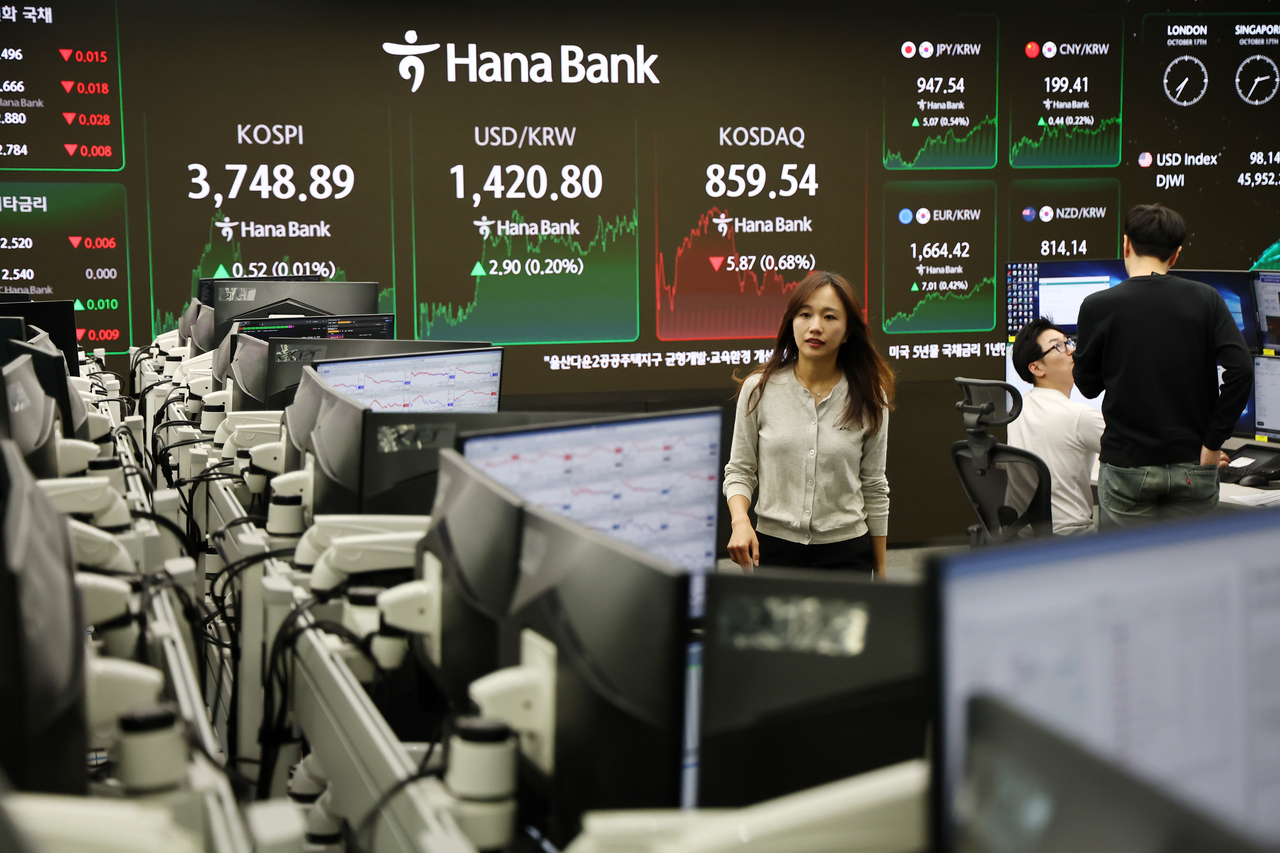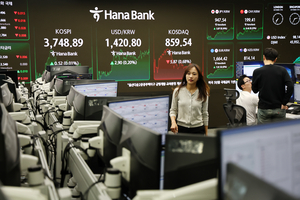 A trading board at Hana Bank’s dealing room shows the Kospi closing at 3,748.89, Friday. (Yonhap)
A trading board at Hana Bank’s dealing room shows the Kospi closing at 3,748.89, Friday. (Yonhap)
South Korea’s benchmark Kospi is swinging wildly even as it hits record highs, with market volatility climbing to its highest level in more than four years amid lingering economic uncertainty.
The Kospi’s average intraday volatility from Oct. 1 to 17 reached 1.81 percent, according to data from the country’s bourse operator Korea Exchange. The figure is the highest recorded since February 2021, when it reached 2.03 percent.
Intraday volatility indicates the ratio of a day’s price range to the average index value. A higher reading suggests greater market swings during the session.
The daily figure had mostly stayed under 1 percent until late September, but has been on the rise in recent weeks since jumping up to 1.52 percent on Oct. 2. On Tuesday, it reached as high as 3.1 percent.
Meanwhile, the Kospi 200 Volatility Index, or VKospi, often dubbed Seoul’s “fear gauge” as equivalent to Wall Street’s VIX, has also surged sharply.
The index, which tracks expected market swings based on option prices, tends to climb when the Kospi falls but can also rise amid rallies if uncertainty remains high.
On Friday, the VKospi jumped to 34.58, up 15.69 percent from the previous day. Considering the figure fluctuated between 20 and 24 in September, it has sharply increased in recent days.
The index’s 52-week high stands at 44.23, marked on April 8 — shortly after US President Donald Trump shocked the world, including Korea, by announcing to impose “reciprocal” tariffs on the country’s trading partners.
The escalation in the US-China trade dispute is likely to remain a source of market uncertainty, though the two countries could reach a trade agreement at the upcoming Asia-Pacific Economic Cooperation summit set to take place here later this month.
Other factors adding to Kospi’s volatility include profit-taking pressures following recent sharp gains, and concerns over how Seoul’s $350 billion investment pledge to the US will be settled.
“It is the first time the VKospi has surpassed the 30-mark since Trump’s announcement in April,” noted Jun Gyun, a derivatives and exchange-traded product strategist at Samsung Securities.
“Generally, VKospi in the 30 range is considered a warning stage, indicating elevated investment risk. With the stock market hitting record highs consecutively, however, both stock prices and volatility have been rising simultaneously.”
The Kospi’s 12-month forward price-to-earnings ratio, which gauges future valuation, stands at 11.3, above its five-year average of 10.6, indicating a potential overvaluation.
“With valuations stretched due to the recent sharp rally, the market may become more sensitive to unexpected factors,” researcher Lee Kyung-min of Daishin Securities said.
silverstar@heraldcorp.com

